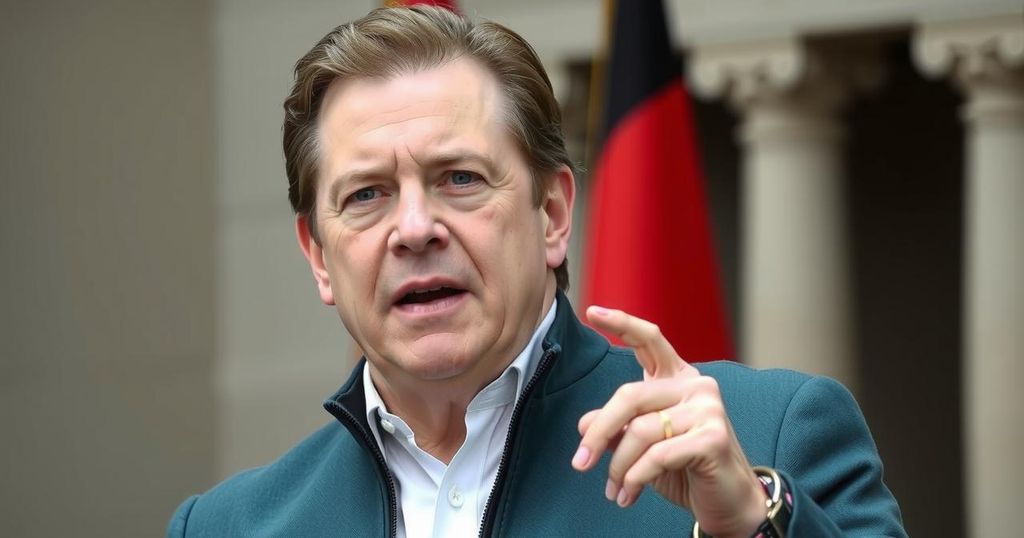German Government Downplays Musk’s Support for AfD Before Election

The German government is working to minimize the impact of Elon Musk’s support for the far-right AfD party ahead of the general election. Musk’s endorsement has stirred significant controversy, prompting debates on free speech and the efficacy of foreign participation in domestic politics. Despite polling well, the AfD faces challenges in gaining broader political support.
The German government has attempted to diminish the significance of Elon Musk’s involvement in the upcoming general election by endorsing the far-right Alternative for Germany (AfD) party. Following Musk’s recommendation of the AfD in a major publication, which resulted in the resignation of the paper’s opinion editor, spokesperson Christiane Hoffmann remarked that while freedom of expression encompasses various views, Musk’s efforts to influence the federal election should not be overlooked. She highlighted that the AfD is under surveillance by Germany’s domestic intelligence agency due to suspicions of right-wing extremism.
In his guest editorial for Welt am Sonntag, Musk referred to the AfD as a “spark of hope for this country” and expressed his belief that the party could guide Germany towards economic prosperity and innovation. He further argued that his investment in Germany legitimizes his commentary on the nation’s issues, despite the AfD’s controversial public image.
While Musk’s support has garnered attention, significant political resistance remains, as the AfD’s candidate, Alice Weidel, lacks viable support from other parties in her quest for the chancellorship. The reaction to Musk’s comments has sparked discussions regarding the limits of free speech in Germany, further complicated by backlash against the media outlets offering him a platform.
The discourse surrounding Elon Musk’s comments on the AfD emerges against a backdrop of electoral change in Germany, as a general election approaches due to a government coalition collapse. As a figure linked to the tech sector, Musk’s influence prompts scrutiny, particularly regarding the democratic process. The AfD, deemed right-wing extremist by some, is under investigation by domestic intelligence, thus raising concerns over foreign endorsement of domestic political entities. Musk’s involvement follows a pattern of public figures intervening in foreign political landscapes, leading to heightened debates on freedom of expression and the role of media in such contexts.
In summary, the German government’s efforts to minimize Elon Musk’s political influence illustrate the complexities of contemporary electoral politics, especially concerning external endorsements and free speech. Musk’s public backing of the AfD has contributed to a polarized dialogue within German media about political affiliations and the ramifications of corporate figures participating in national discourse. As the election approaches, the implications of such influences will likely be further scrutinized.
Original Source: abcnews.go.com








